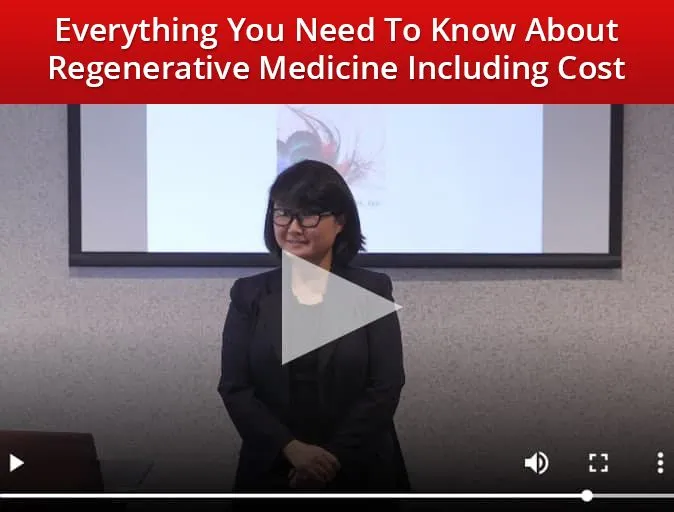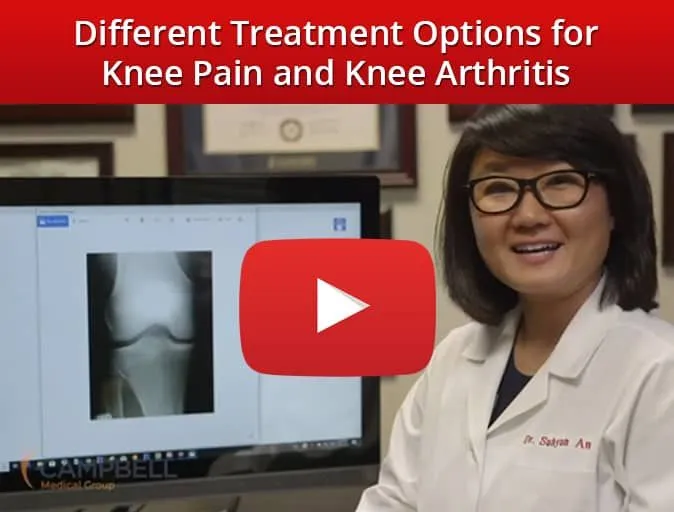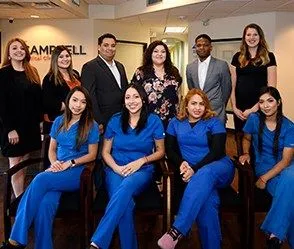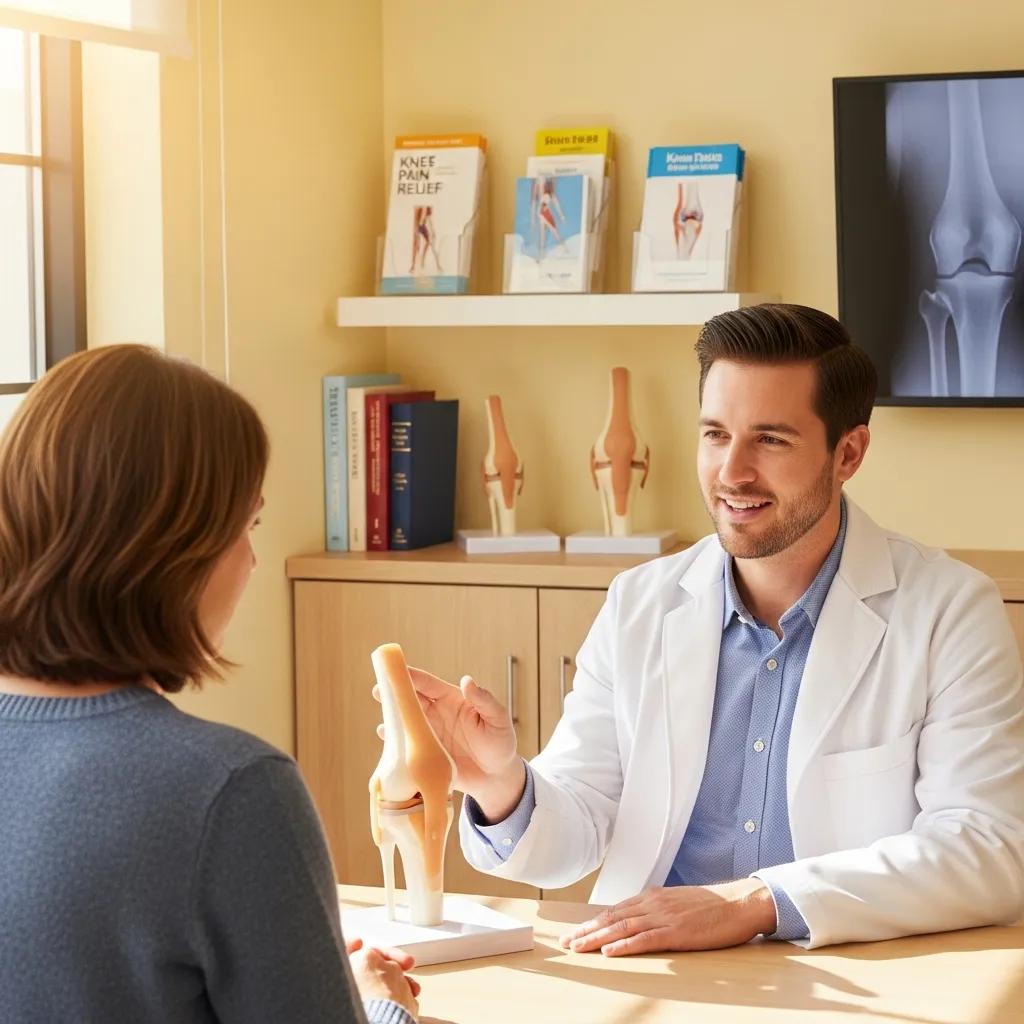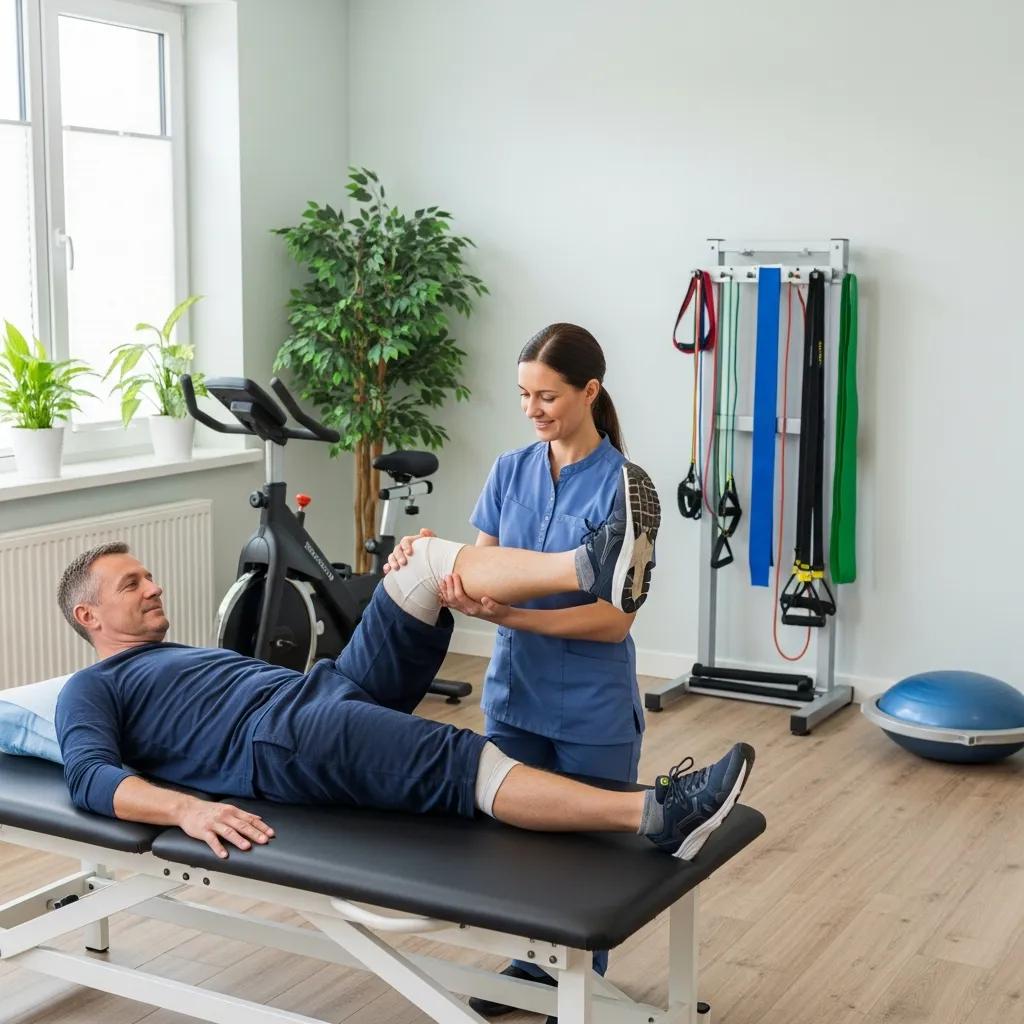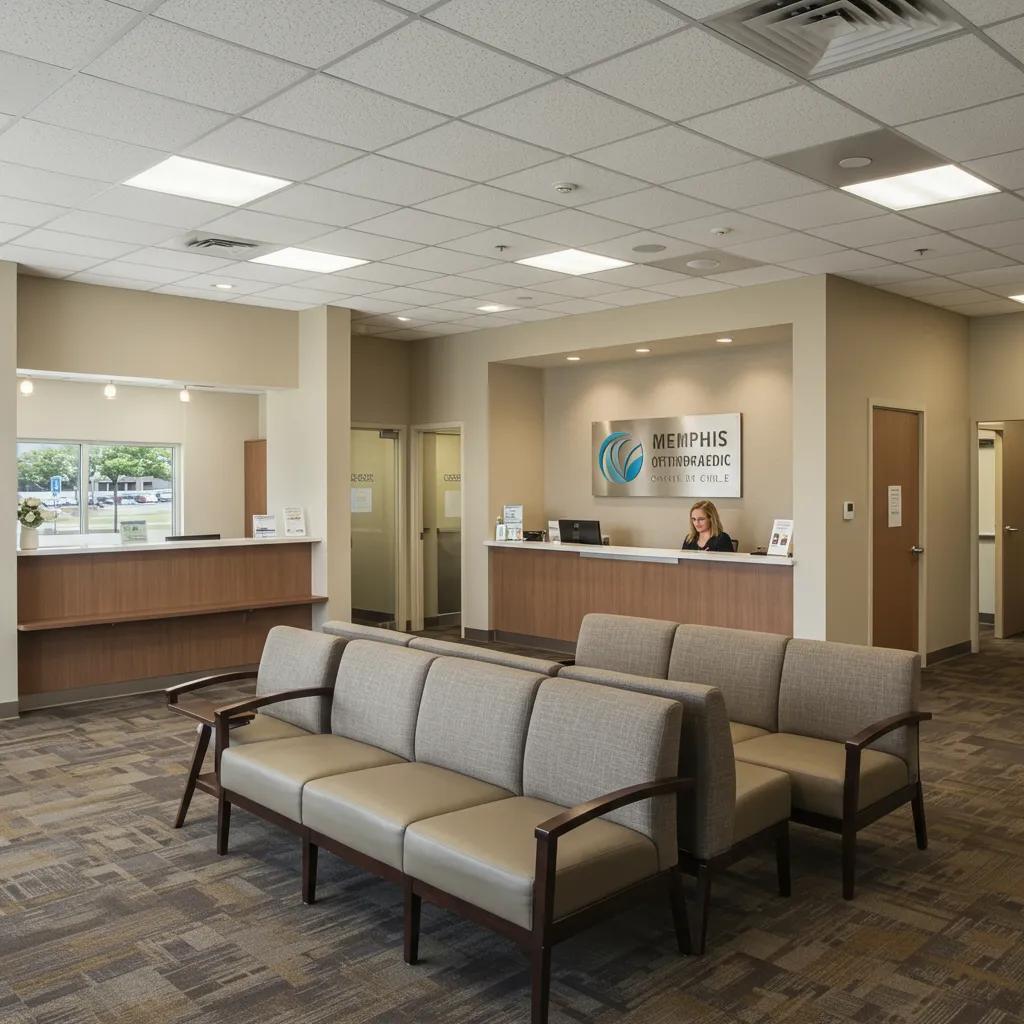
Discover the Advantages of Partnering with a Houston Orthopaedic Clinic for Your Pain Relief Journey
Selecting the right orthopaedic clinic in Houston can profoundly enhance your path to managing pain by offering specialized care for your musculoskeletal system, innovative non-invasive treatments, and a patient-first approach focused on addressing the root cause of your discomfort. With musculoskeletal issues impacting over 1.3 billion individuals globally as of 2017, seeking expert orthopaedic assessment in Houston grants you access to a team of specialists dedicated to restoring your mobility and improving your overall quality of life. This guide explores the comprehensive services available at Houston orthopaedic centers, the distinct benefits of non-surgical interventions, the personalized patient experience, the expertise and advanced technologies of leading specialists, effective strategies for common pain conditions, the advantages of local care, and practical tips for preparing for your appointment. Inspired by holistic methods, such as the regenerative medicine protocols championed by Houston’s Campbell Health Center, this resource aims to equip you with the knowledge to navigate every stage of your orthopaedic treatment with confidence.
What Comprehensive Orthopaedic Care Services Are Available in Houston?
Comprehensive orthopaedic care in Houston covers a complete spectrum of diagnostic, therapeutic, and rehabilitative services designed to address disorders of the bones, joints, muscles, ligaments, tendons, and nerves. By seamlessly integrating advanced imaging, thorough clinical evaluations, and individualized assessments, these clinics provide precise treatments for both sudden injuries and long-standing conditions. For instance, a patient experiencing a herniated disc might undergo sophisticated imaging followed by a customized physical therapy plan, demonstrating how integrated care unifies diagnosis, treatment, and recovery.
Which Body Areas Do Houston Orthopaedic Clinics Specialize In?
Houston orthopaedic clinics feature specialists who focus on specific anatomical regions, ensuring deep expertise and optimal patient outcomes. These dedicated practitioners combine in-depth knowledge of regional biomechanics with highly targeted treatment protocols.
| Body Area | Specialist Role | Common Conditions |
|---|---|---|
| Spine | Spine surgeon | Herniated discs, spinal stenosis, sciatica |
| Knee | Knee specialist | Osteoarthritis, ACL tears, meniscus injuries |
| Hip | Hip specialist | Hip impingement, bursitis, labral tears |
| Shoulder | Shoulder specialist | Rotator cuff tears, impingement, dislocations |
| Hand & Wrist | Hand surgeon | Carpal tunnel, tendonitis, fractures |
| Foot & Ankle | Podiatrist/orthopaedic surgeon | Plantar fasciitis, Achilles tendon injuries |
Each specialist concentrates on the common conditions within their area of expertise and then collaborates with rehabilitation professionals to guide patients toward complete functional recovery.
How Do Multidisciplinary Teams Enhance Orthopaedic Treatment?
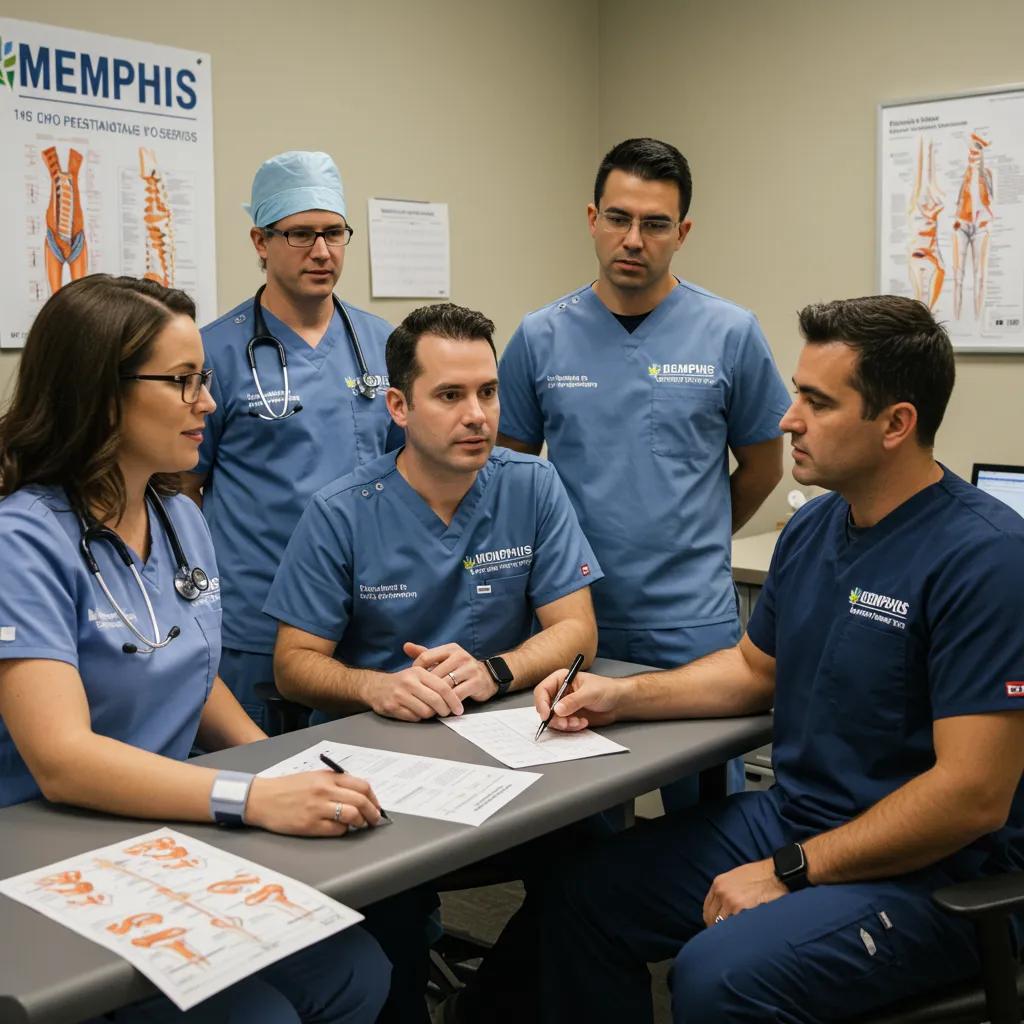
Multidisciplinary teams in Houston bring together the skills of surgeons, physical therapists, pain management experts, athletic trainers, and imaging technicians to provide coordinated, high-quality care. From your initial visit through the rehabilitation process, these teams share clinical insights to refine treatment strategies and proactively address potential challenges. For example, a surgeon might consult with a physical therapist regarding postoperative mobilization techniques, ensuring a smoother transition from intervention to recovery. By pooling their collective expertise, multidisciplinary care minimizes treatment delays, enhances patient safety, and promotes comprehensive healing that addresses all aspects of your condition.
Multidisciplinary Orthopaedic Trauma Service for Hip Fracture Care
The medical orthopaedic trauma service (MOTS) is a collaborative model for care that was initiated by the leadership of our medical center. The MOTS is a multidisciplinary team that provides care for patients with hip fractures.
The medical orthopaedic trauma service: an innovative multidisciplinary team model that decreases in-hospital complications in patients with hip fractures, CJ Dy, 2012
This collaborative approach is especially valuable for complex cases, ensuring thorough management and leading to better patient outcomes.
Multidisciplinary Approach to Geriatric Hip Fracture Care
The treatment of geriatric hip fractures by a multidisciplinary hip fracture service including geriatricians/internists and orthopaedic surgeons has been shown to yield better outcomes. A collaborative orthogeriatrics care model is beneficial.
Outcomes in multidisciplinary team-based approach in geriatric hip fracture care: a systematic review, 2020
What Are the Advantages of Non-Surgical Orthopaedic Treatments in Houston?
Non-surgical orthopaedic treatments in Houston are designed to alleviate pain, restore function, and promote tissue health without the inherent risks associated with anesthesia or invasive procedures. Patients often experience shorter recovery periods, reduced complication rates, and the ability to continue with their daily activities during treatment. For instance, a combination of therapeutic injections and guided exercises can effectively reduce knee pain more quickly than waiting for surgical intervention.
Why Are Conservative Treatments Preferred Before Surgery?
Conservative treatments are typically recommended as initial interventions because they effectively address inflammation, muscle imbalances, and biomechanical issues that frequently contribute to joint and spine pain.
- Physical therapy enhances range of motion and strengthens supporting muscles.
- Corticosteroid injections provide targeted relief from acute inflammation in specific joints.
- Bracing and orthotics help correct alignment and reduce stress on affected areas.
- Activity modification and ergonomic adjustments prevent the worsening of symptoms.
Embracing conservative care can postpone or even eliminate the need for surgery by supporting the body’s natural healing processes and improving functional resilience, paving the way for regenerative therapies if further intervention is eventually required.
How Does Regenerative Medicine Improve Healing and Pain Relief?
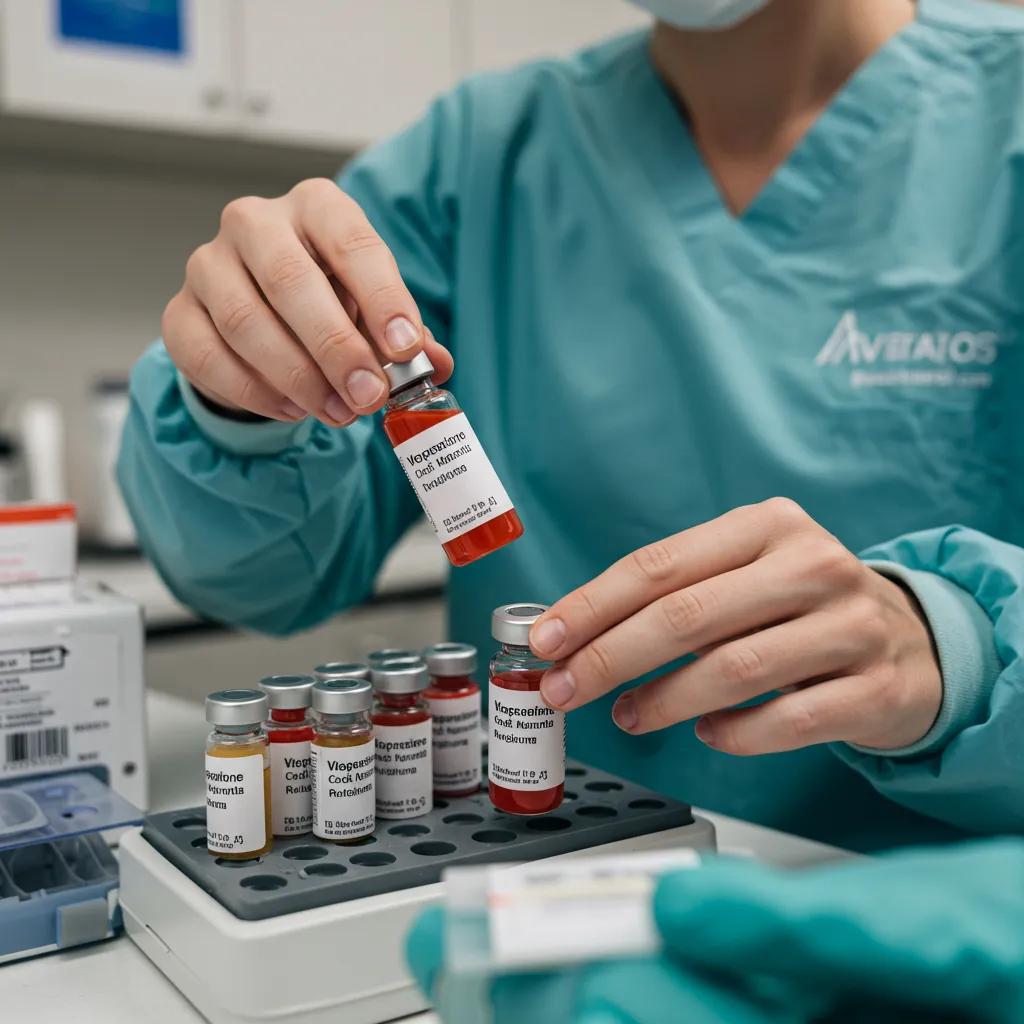
Regenerative medicine utilizes biological agents—such as platelet-rich plasma, stem cell concentrates, and growth factor formulations—to stimulate tissue repair at the cellular level. By activating the body’s inherent healing capabilities, these therapies promote cartilage regeneration, tendon remodeling, and enhanced blood flow. Consequently, patients often experience lasting pain reduction and improved joint function that surpasses the results achieved with treatments focused solely on symptom management.
What Are the Differences Between Traditional and Regenerative Therapies?
A comparative look reveals how orthopaedic clinics in Houston integrate both conventional and regenerative approaches to optimize patient outcomes.
| Treatment Type | Mechanism | Typical Outcomes |
|---|---|---|
| Traditional Therapies | Symptom management via medication, physical therapy, and bracing | Provides temporary relief without stimulating tissue regeneration |
| Regenerative Therapies | Uses concentrated biologic agents to repair damaged tissues | Encourages lasting healing, reduces inflammation, and restores function |
By selecting therapies that align with individual conditions and recovery objectives, Houston practitioners develop personalized treatment plans that combine immediate symptom relief with long-term regenerative benefits.
How Do Houston Orthopaedic Clinics Provide a Patient-Centered Experience?
Houston orthopaedic clinics place your personal goals, preferences, and lifestyle at the forefront when crafting your care plan. This patient-centered philosophy encourages active participation and shared decision-making, leading to greater adherence and satisfaction throughout your treatment journey.
Patient-Centered Care and Population Health in Orthopaedics
Understanding and implementing population health and patient-centered care will facilitate navigating initiatives that affect care delivery, and play in orthopaedic practice moving forward.
Patient-centered care and population health: establishing their role in the orthopaedic practice, 2016
This dedicated focus ensures that treatment plans are not only medically effective but also harmoniously integrated with your overall well-being and daily life.
How Are Personalized Treatment Plans Developed for Patients?
Personalized plans begin with a thorough assessment of your medical history, activity levels, and pain triggers, followed by collaborative goal-setting between you and your care team. Your clinicians will then recommend a tailored sequence of interventions—ranging from lifestyle adjustments and physical therapy to advanced injections or minimally invasive procedures—timed to your recovery progression. This individualized approach fosters accountability and empowers you to monitor your progress at every stage.
Why Is Patient Education Important in Orthopaedic Care?
Patient education empowers you with the knowledge to fully understand your condition, available treatment options, and anticipated results. Clinics provide clear explanations of anatomy, how therapies work, and effective self-management techniques, which builds trust and alleviates anxiety. When you grasp the rationale behind specific exercises, postural adjustments, or regenerative injections, you become a more engaged participant, leading to improved adherence and more predictable outcomes.
What Does a Seamless Orthopaedic Care Journey Look Like?
A seamless orthopaedic care journey in Houston involves efficient scheduling, coordinated referrals, and consistent follow-up care. Your initial consultation flows smoothly into diagnostic imaging, therapy sessions, and specialist consultations without unnecessary paperwork or delays. Care coordinators actively monitor your progress and adapt your plan as needed, ensuring that rehabilitation milestones—from regaining mobility to rebuilding strength—are achieved without interruption and result in lasting functional improvements.
Who Are the Leading Orthopaedic Specialists and What Technologies Do They Use in Houston?
Premier orthopaedic clinics in Houston attract board-certified surgeons, specialized therapists, and pain management experts who uphold rigorous training standards and possess advanced sub-specialty credentials. Their exceptional proficiency is the foundation for achieving excellent patient outcomes across a wide spectrum of musculoskeletal conditions.
What Qualifications and Expertise Do Houston Orthopaedic Doctors Have?
Orthopaedic doctors in Houston typically hold board certification from the American Board of Orthopaedic Surgery and have completed advanced fellowship training in specialized fields such as sports medicine, spine care, joint reconstruction, or hand surgery. Many practitioners actively contribute to research publications and present their findings at national conferences, underscoring their commitment to staying at the forefront of medical advancements. This depth of expertise ensures that complex cases—from injuries in young athletes to the challenges of degenerative osteoarthritis—are managed using the most current, evidence-based protocols.
Which Advanced Diagnostic and Treatment Technologies Are Available?
- High-resolution MRI and CT scanning provide exceptionally detailed views of bone, cartilage, and soft-tissue structures.
- Ultrasound-guided injections enhance the precision of therapeutic and regenerative treatments.
- Arthroscopic and robotic-assisted surgical tools enable smaller incisions, minimize tissue trauma, and promote faster recovery.
These cutting-edge technologies, coupled with real-time data analysis, refine surgical planning and significantly elevate the overall safety and effectiveness of treatments.
How Do Houston Orthopaedic Clinics Address Common Pain Conditions?
Houston clinics employ customized non-surgical strategies for a variety of prevalent conditions, integrating targeted interventions with comprehensive rehabilitative support to achieve significant pain relief and functional restoration.
What Non-Surgical Solutions Exist for Chronic Back and Neck Pain?
Chronic back and neck pain are managed through a comprehensive, multimodal approach that includes therapeutic exercises, spinal stabilization programs, targeted epidural and facet joint injections, and posture correction techniques. By addressing underlying muscle weakness, joint inflammation, and biomechanical imbalances, these conservative protocols effectively reduce nerve irritation and enhance spinal health without the need for surgery.
How Is Joint Pain (Knee, Hip, Shoulder) Effectively Treated?
Treatment for joint pain focuses on reducing inflammation, protecting cartilage, and restoring optimal mobility. Modalities include viscosupplementation injections to lubricate the joint, regenerative biologics to encourage cartilage repair, and guided strengthening exercises to alleviate stress on affected areas. Patients often progress from experiencing symptomatic relief to achieving improved joint integrity, thereby minimizing the advancement of degenerative changes.
What Are the Benefits of Sports Injury Prevention and Rehabilitation Programs?
Sports medicine programs in Houston integrate injury risk assessments, movement analyses, and functional training to prevent injuries and optimize athletic performance. When injuries do occur, structured rehabilitation protocols focus on soft-tissue healing timelines, neuromuscular re-education, and sport-specific conditioning. This comprehensive continuum—from prevention strategies to return-to-play guidelines—effectively reduces the risk of re-injury and accelerates a safe return to desired activities.
Why Should Patients Choose Houston Orthopaedic Clinics Over Other Options?
When it comes to seeking orthopedic care, patients face a multitude of options ranging from general practitioners to specialized clinics. Houston Orthopaedic Clinics stand out as a premier choice for several compelling reasons. First and foremost, these clinics are staffed with highly trained orthopedic specialists who possess advanced knowledge in musculoskeletal health. With many of these professionals holding board certifications and extensive training in their respective fields, patients can trust that they are receiving care informed by the latest medical advancements and practices. This level of expertise is crucial for obtaining accurate diagnoses and effective treatment plans tailored to individual needs.
Additionally, Houston Orthopaedic Clinics offer a comprehensive range of services that extend beyond traditional consultations and surgeries. Many clinics incorporate cutting-edge technologies such as imaging studies and minimally invasive surgical techniques, ensuring that patients receive the most efficient and effective treatments available. Furthermore, these clinics emphasize holistic care, often including physical therapy, rehabilitation programs, and wellness resources as part of the treatment journey. This approach not only addresses immediate injuries but also focuses on long-term health and recovery, making it a well-rounded choice for patients looking for durable solutions to orthopedic issues. By choosing Houston Orthopaedic Clinics, patients are not just opting for treatment; they are investing in a patient-centered experience designed to enhance their overall well-being.
Houston orthopaedic clinics stand out due to their convenient local accessibility, specialized medical expertise, and integrated care models specifically designed to meet the needs of the community.
What Are the Key Benefits of Local Orthopaedic Care in Houston?
Local clinics offer reduced travel times, prompt appointment availability, and a deep understanding of region-specific lifestyle demands—such as participation in weekend sports leagues or active senior living. This convenience facilitates quicker intervention, helps prevent complications, and fosters stronger patient–provider relationships built on a foundation of community connection.
How Do Houston Clinics Support Faster Recovery and Improved Mobility?
By expertly combining conservative therapies, regenerative protocols, and evidence-based rehabilitation techniques, Houston providers minimize recovery downtime and maximize functional gains. Early mobilization plans, personalized exercise regimens, and continuous progress monitoring ensure that you regain strength and range of motion more rapidly than with fragmented or generic treatment approaches.
How Can Patients Prepare for Their Visit to a Houston Orthopaedic Clinic?
Thorough preparation ensures that you gain the maximum benefit from your consultation and helps expedite the development of an effective care plan.
What Should You Expect During Your Initial Orthopaedic Consultation?
During your first appointment, anticipate a comprehensive review of your medical history, a detailed physical examination, and an open discussion about your symptoms, limitations in activity, and treatment objectives. Your clinicians may order diagnostic imaging or laboratory tests to clarify your diagnosis and will then present potential conservative and advanced treatment options, providing a clear pathway for the next steps in your care.
How Can You Maximize the Benefits of Your Orthopaedic Treatment?
You can optimize your treatment outcomes by diligently following prescribed exercise routines, consistently tracking your symptoms, adhering to injection schedules, and promptly communicating any progress or concerns. Actively engaging with educational materials and rehabilitation sessions empowers you to play a significant role in your recovery and achieve lasting pain relief.
Your journey toward effective pain relief and restored function begins with making informed decisions about orthopaedic care in Houston. By understanding the extensive range of comprehensive services, the advantages of non-surgical and regenerative treatments, the hallmarks of a patient-centered approach, the qualifications and technologies of leading specialists, and targeted strategies for common conditions, you can confidently navigate every phase of your treatment. While Campbell Health Center in Houston serves as an excellent example of expertise in non-surgical pain management and regenerative medicine, these fundamental principles are universally applicable to orthopaedic care—ensuring you receive safe, holistic, and innovative solutions wherever you choose to seek treatment. Take the next step by scheduling a consultation with a Houston orthopaedic clinic and begin your path toward enduring relief and an improved quality of life.
Conclusion
Your journey toward effective pain relief and restored function begins with making informed decisions about orthopaedic care in Houston. By understanding the extensive range of comprehensive services, the advantages of non-surgical and regenerative treatments, and the hallmarks of a patient-centered approach, you can confidently navigate every phase of your treatment. While Campbell Health Center in Houston exemplifies expertise in non-surgical pain management, these principles apply universally to orthopaedic care. Take the next step by scheduling a consultation with a Houston orthopaedic clinic and begin your path toward enduring relief and an improved quality of life.

